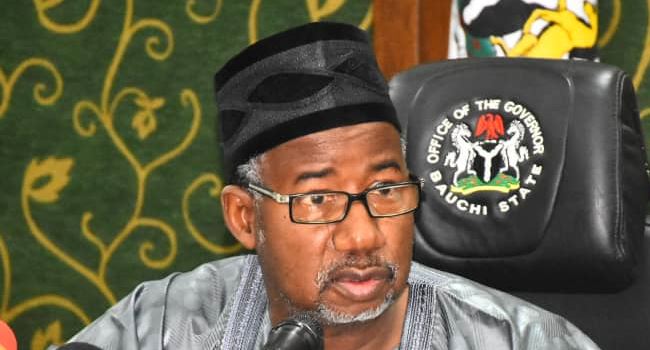- The federal government has proposed a minimum wage of N48,000, N54,000, and most recently, N60,000.
- The NLC and TUC rejected all proposals and insisted on N615,500, which they demanded citing the high cost of living.
Bala Mohammed, governor of Bauchi, has asked to labour union to postpone its planned strike for June 3.
The governor said the strike may cripple the economy, pose further cause pain to workers and other Nigerians.
On Friday, the Nigeria Labour Congress (NLC) and the Trade Union Congress (TUC) announced an indefinite strike over the federal government’s refusal to increase the minimum wage from N60,000.
“The strike is because of the government’s refusal to increase the minimum wage and also their refusal to reverse the electricity tariff hike,” the NLC spokesperson said.
The organised labour had given the National Electricity Regulatory Commission (NERC) and the federal government an ultimatum of May 31 to reverse the electricity tariff hike.
On April 3, NERC approved an increase in the electricity tariff for customers in the Band A classification—from N66 to N225 per kwh.
The tariff hike attracted public outcry and calls for its reversal.
The labour unions had also given a May 31 ultimatum for the federal government to finalise the new national minimum wage fixing process for workers.
So far, the federal government has proposed a minimum wage of N48,000, N54,000, and most recently, N60,000.
The NLC and TUC rejected all proposals and insisted on N615,500, which they demanded citing the high cost of living
Speaking after his visit to Alex Otti, governor of Abia, Godwin Obaseki, governor of Edo and PDP national working committee members on Saturday, Bala asked the labour union to reconsider its actions.
The governor warned that the country could descend into severe poverty, expressing his serious concern about the strike’s detrimental effects on Nigerians’ economy.
“I have always looked forward to making sure that workers get the best in terms of welfare, in terms of salaries and wages but it has to be affordable; something that is within the threshold of affordability by all the sub-national and local governments. Definitely what the Federal Government will be negotiating,” the governor said.
“Some of the state governors will not be able to pay. Even at the moment, the current minimum wage of N30,000, some states are not able to pay. And I know labor leaders are really leaders. They should look at this because the strike may cripple the economy and further cause pain to workers and all of us. So, we are pleading that we should have a combining point where we can look at our affordability.
